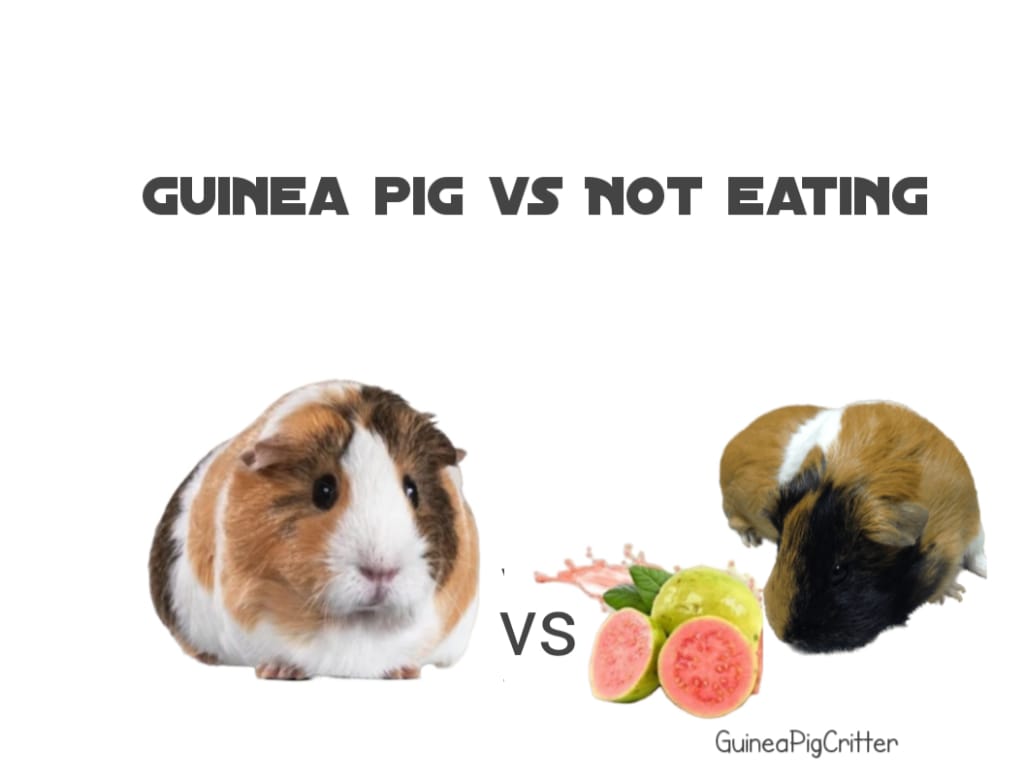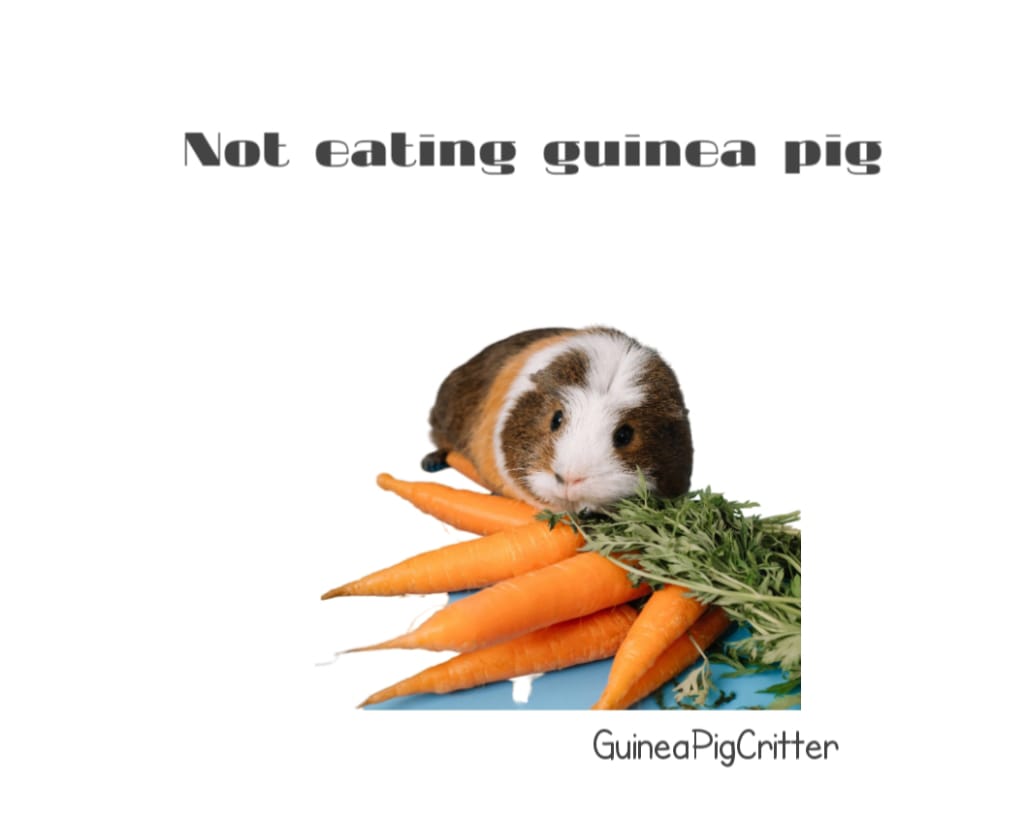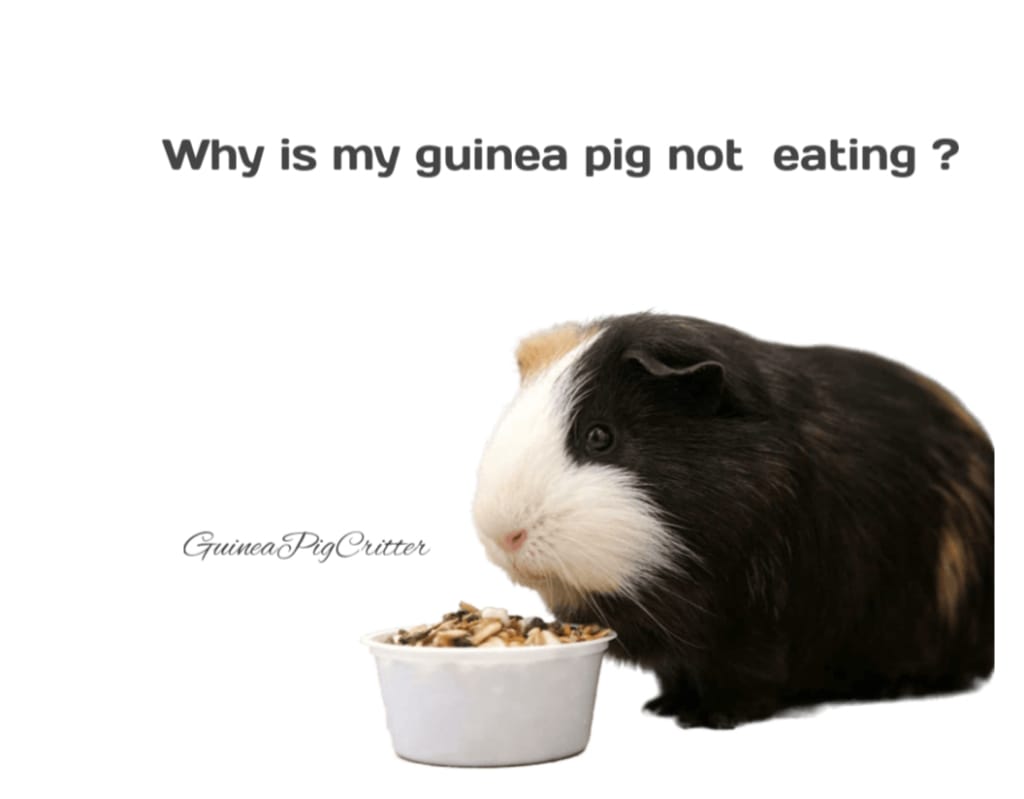Guinea pigs also referred to as cavies, are the favorite pets of many due to their calm temperaments, easy to socialize and sweet sounds it makes from time to time. Like all other animals, these pets should also be fed properly as they are herbivores and they have certain dietary requirements that have to be met. Their optimal nourishment includes mainly good quality hay, fresh vegetables and pellets which contain proper vitamins and fibrous materials.
Nonetheless, situations exist where a guinea pig will not eat anything and this may be very worrying to most of the owners. This could however be dangerous as it happens when there are underlying health complications, even stress or something wrong with the diet. It is important to know the reasons of such behavior from the pet as it can be crucial for their health.
In this article, we intend to discuss the reasons as to why guinea pigs tend to stop eating, the symptoms that may alert the owners of such a situation and what the owners should do about if this happens. Close attention should be given to the animal’s needs in order to assist the animal in keeping up with good health.
See this post: How to train a guinea pig?
Reasons for Failure to Eat
Health Issues
Dental Problems:
The Role of Dental Care: A guinea pig having no appraisal teeth will have health risks because that is not normal for the pet. They also have a continuous dentition and chewing implements are needed to maintain functioning of the teeth. In the event that their teeth do not meet in a correct pattern or in the event that their teeth grow too long there is a chance for an enormous amount of pain being created and thus they will not be able to eat and hence contribute to an health risk.
Signs of Dental Issues: Excessive salivation, poor appetite and associated weight loss should be investigated. Even muffled cries like a hunger strike may make a guinea pig paw and rub its mouth.
Preventative Care: Proper assessment for such problems should always be done by a veterinarian through a checkup. It is important to provide appropriate chewing objects made of safe materials like untreated wood or hay based toys.
Gastrointestinal Problems:
Common Conditions: Danger will also present in diseases like bloat (gas accumulation) or blockage of the intestines. Such problems could occur due to dietary errors, abruptly changing the diet or some medical issues.
Symptoms to watch For: Abdominal distention, lethargy, due to the weight gain adopt a hunched posture and changes in droppings (i.e. fewer droppings or drop none). In cases when guinea pigs develop severe bloating, they appear restless or uncomfortable.
Emergency Response: Such symptoms cannot be taken lightly and need immediate veterinary review because gastrointestinal stasis may set in very rapidly and then progress to serious complications.
Respiratory Infections:
Understanding Respiratory Health: The lungs of guinea pigs can be very sensitive, which is why they are prone to developing infections of this category and Types. Their occurrence may also occur as a result of inadequate ventilation, dust or mold and other factors.
Common Symptoms: Pay attention to cough, sneezing, nasal discharge, difficulty in breathing and weakness. A guinea pig may also have wheezing sounds and may become unhealthy due to problems in their breathing.
Impact on Appetite: If a guinea pig is in trouble grasping air, they will most probably feel too sensitive to consume any form of food. These should be dealt with quickly through veterinary interventions especially through the treatment of any infection of the lungs.
Other Illnesses And Others
Common Health Issues: Low appetite may also be due to other medical diseases like Urinary tract infection, Kidney disease or bacterial infections in a pet’s body. Symptoms tend to be quite diverse, thus tolerance has to be exercised.
Preventative Care: These issues can be managed – early they can be managed in fact the regular visit helps in noticing these issues at a very early stage and paying attention on monkeys’ behavior will assist in preventing problems.
Stress Factors
Environmental Changes:
Causes of Stress: Guinea pigs tend to get unwell with their environment especially when the place they stay changes or when the arrangement of their cages is rearranged or new animals are added to the family. Even the slightest change is sufficient to cause stress.
Signs of Stress: There are physical behaviors like hiding, reduced sociability and atypical sounds. Other signs may include aggression or self-creeping where the pigs torture themselves due to excessive stress.
Regulating Stress: In order to control emotions, it is helpful to ensure a calm and constant environment.
Noise and Activity Levels:
Impact of Loud Environments: Environments filled with loud children, other pets and home activities can be quite daunting and not very inviting as aggravating noises force guinea pigs to retreat and lose interest in food.
Creating A Calm Space: Ensure the guinea pig’s cage is placed in a protected and quiet corner avoiding places constantly disturbed by too many people and noise. Perhaps a soft cover over the cage would also help reduce external stimulation making them more comfortable.
Dietary Changes
Sudden Food Changes:
Transitional Diets: There must be a definite slow introduction of any new food to the diet as it may be disruptive to the normal functioning of the digestive system or cause digestive disorders. One must always transition slowly over 7-10 days to avert such gastro-intestinal problems.
Signs of Dietary Distress: Some metabolic disorders may be expressed through digestive disturbances including but not limited to diarrhea, bloat, and in some cases absolute anorexia. If the diet is altered abruptly there is a high chance of stress which leads to digestive upset.
Spoiled Food:
Recognizing Spoiled Food: Fruits and vegetables that are fresh and given to the guinea pig along with hay must be periodically checked for spoiling and wasting. Therefore spoiled or wilted greens are quite likely to discourage a guinea pig from feeding.
Storage Tips: Vegetables are better stored in a cool area while hays are kept away from moisture and light to avoid the growth of a fungus. Fresh effect of washing the vegetables should always be applied to remove some pesticides or chemical sprays.
Changes in Eating Habits: At a certain age, guinea pigs develop certain health factors such as pains in the mouth or other long-lasting factors that can make adversely the desire to feed.
Preventative Measures
Routine Vet Visits Having check up/s at least once in every twelve months is highly recommended for the health of your guinea pig. Older guinea pigs may require high visits.
Diet and Environment: Fiber should be the major constituent and sugar as much as possible should be avoided. The cage should be large and enriched for the guinea pig to avoid lack of activity which can lower appetite.
See this post :-how to make a guinea pig house?
Conclusion
In conclusion, it is very important to pay attention as to what your guinea pig is or is not eating, as this may have a good or an adverse effect on their well-being. As well, one must also understand that there are reasons why a guinea pig does not want to eat – dental problems, illnesses of the stomach and intestines, stress due to a new or noisy environment, etc.
These center on monitoring them including their behavior, weight, and stool. When these are conducted, possible problems would be identified early leading to immediate veterinary services as the situation would demand.
One cannot improve on this in terms of encouraging the readers to carefully examine the activities of their guinea pigs and including feeding and adjust to their new habits if there is any. They can, therefore, be learnt that the proper upbringing and a balanced diet enable the pet to enjoy good health and happiness.


